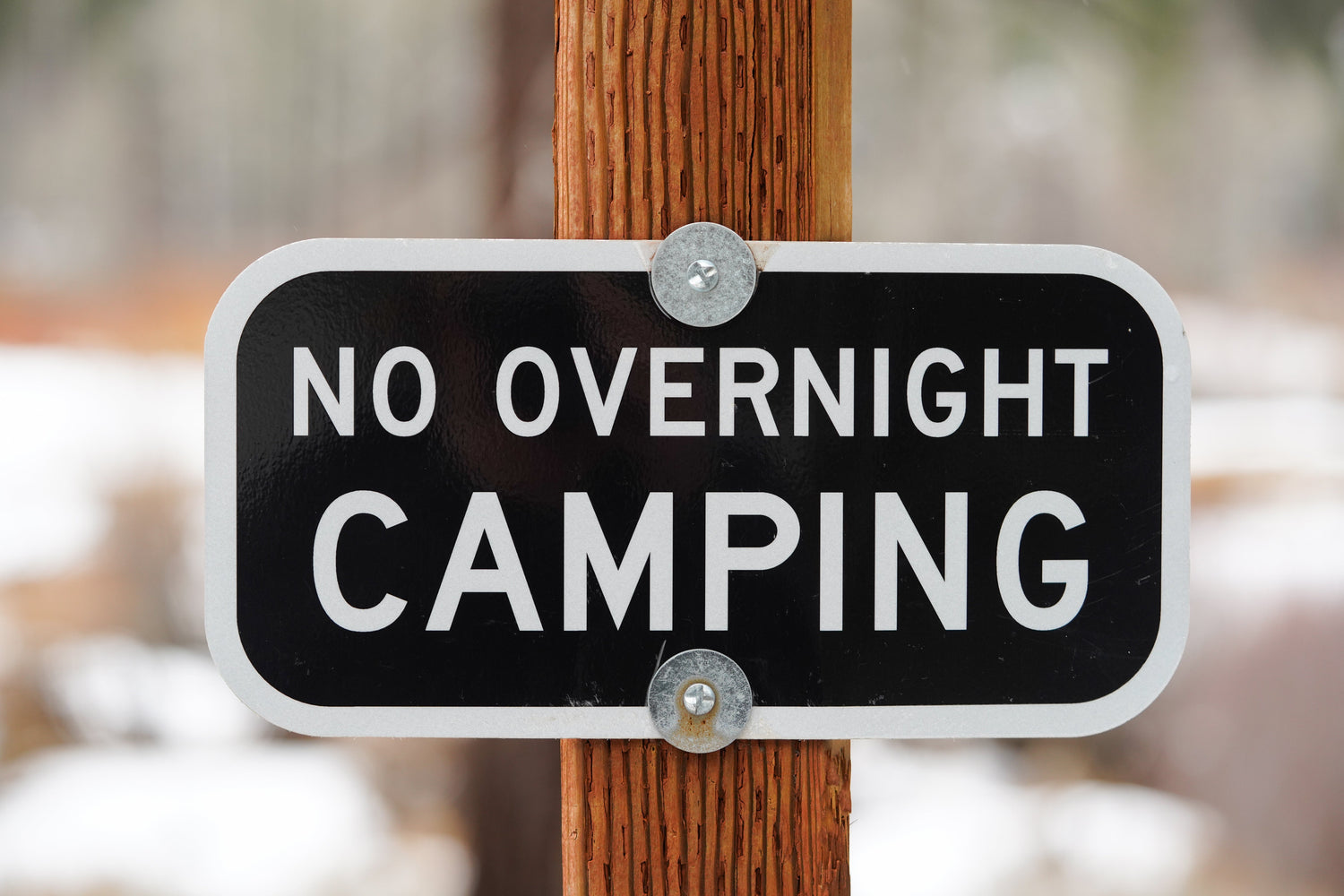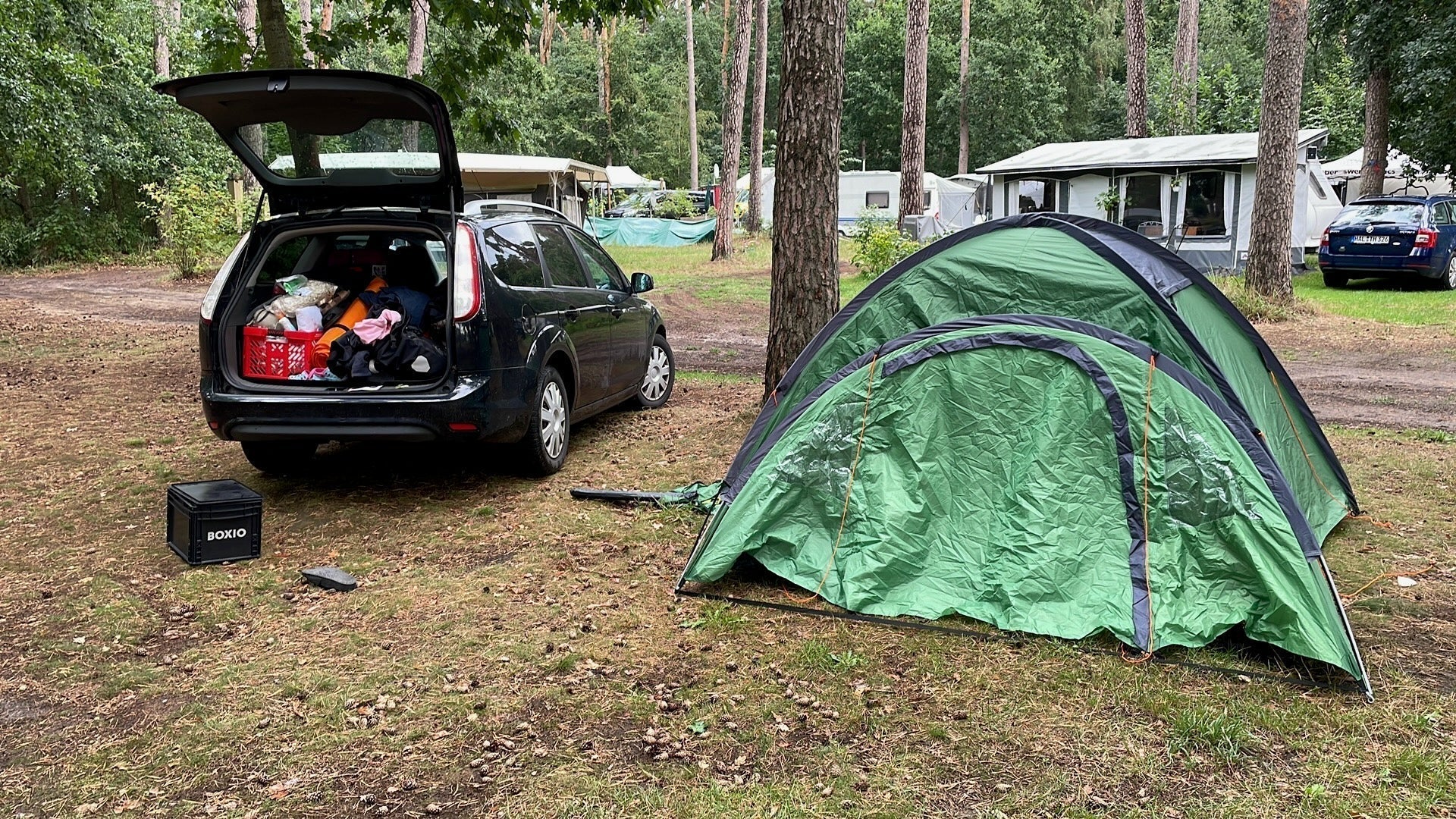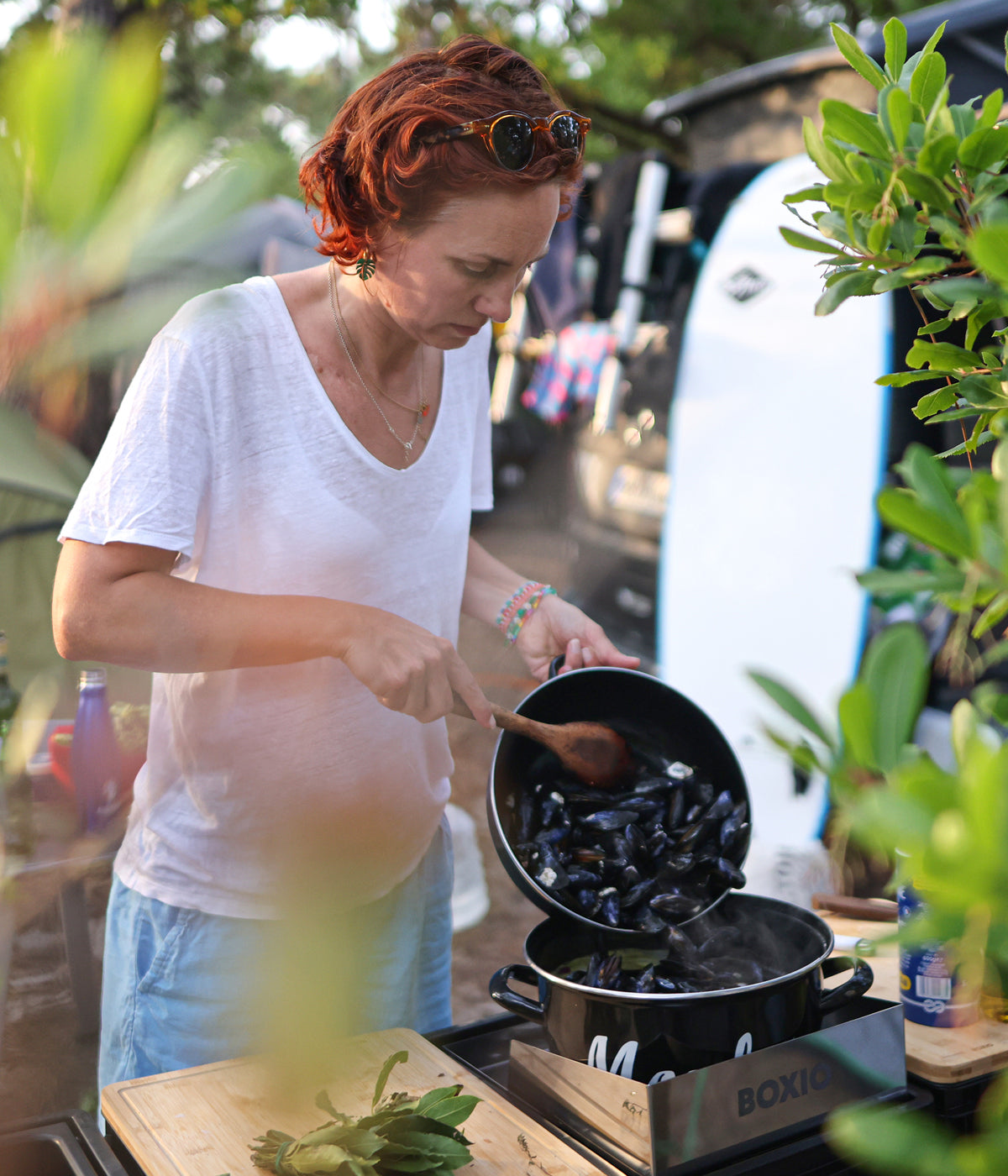Longing for freedom – but not at any price
Waking up all alone in a clearing or falling asleep under the stars right by a lake: For many campers, this sounds like the perfect adventure. But the reality is different. More and more regions in Germany are putting a stop to wild camping. Why? And how can you still travel legally and close to nature? We'll explain – and show you how you can still stay independent with clever equipment like that from BOXIO .
Is wild camping allowed in Germany?
The short answer: No, wild camping is strictly prohibited in Germany . Anyone who simply spends the night in a tent, campervan, or van somewhere in nature without explicit permission risks a fine. Depending on the state, this can range from 10 to a whopping 5,000 euros.
Wild camping means spending the night outside of officially designated campsites or private property without permission – be it in the forest, by a lake or on a meadow.
But be careful : Bivouacking (spending the night outdoors without a tent, e.g., with a tarp) is permitted in some cases – but only in emergency situations and never in nature reserves. A clean solution for nights in the wilderness? The BOXIO composting toilet – so you leave no trace when wild camping.
BOXIO TOILET MAX+ | Separating toilet complete set
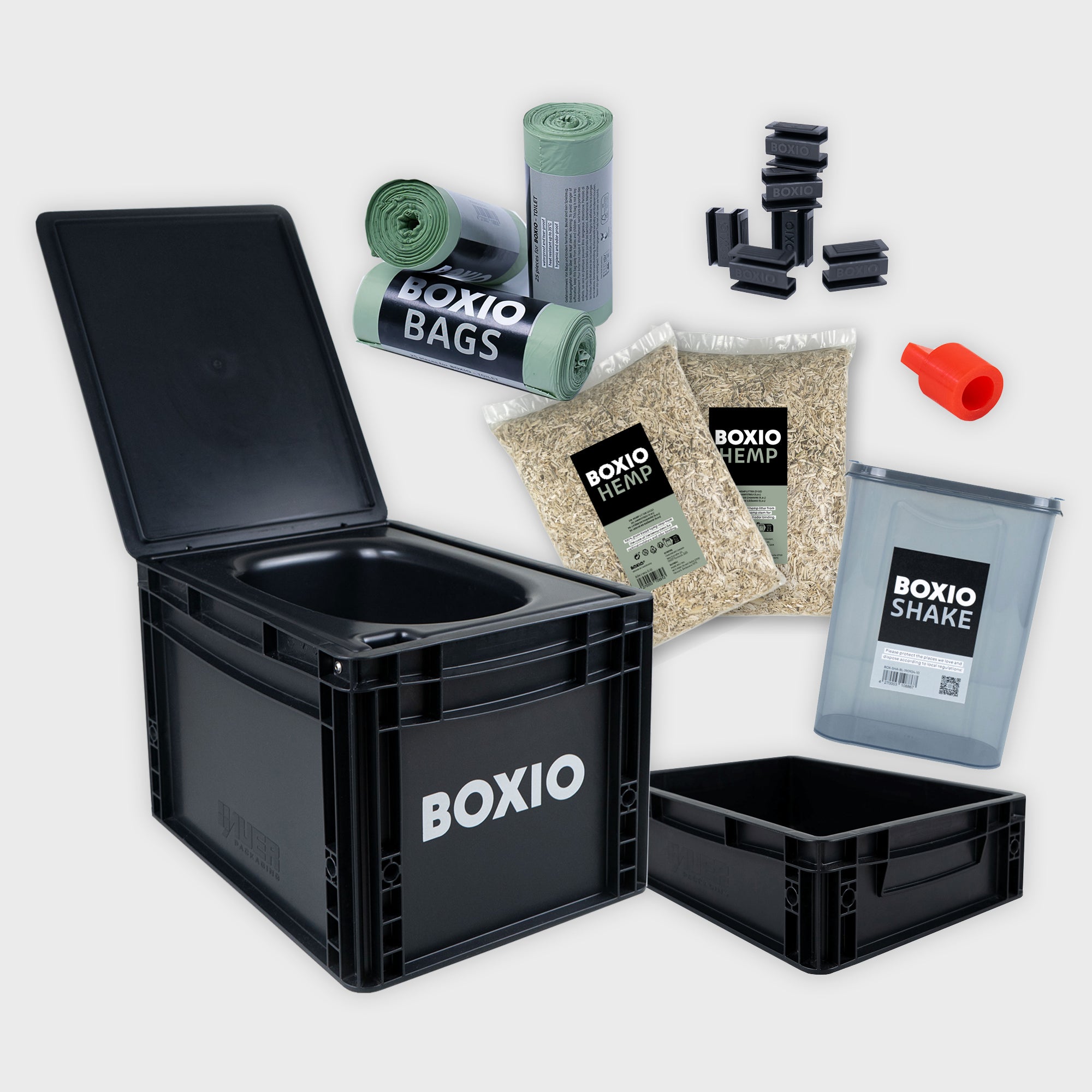
Why is the camping ban increasing?
More and more campers are on the road. Vanlife is a trend. At the same time, nature, animals, and the environment are more sensitive than ever. The reasons for new regulations:
-
Overcrowding of popular spots
-
Garbage problem
-
Noise pollution
-
Fire danger
-
Protection of flora and fauna
Many wild campers aren't even aware they're doing something illegal. But the increasing number of violations is leading to stricter controls – and thus more bans. With a compact Eurobox system from BOXIO, you can organize your equipment so you don't have to camp wildly while on the road.
Where can I stay overnight with my camper?
Here's where things get interesting: According to the road traffic regulations, it's legal to sleep overnight in a parking lot to regain your driving ability – this applies to motorhomes, vans, and even cars with roof tents. But: No tables, no chairs, no grills. Just sleep!
This means specifically:
-
Allowed : Sleeping in the camper for a maximum of 10 hours – purely for regeneration
-
Not allowed : Camping behavior (setting up, cooking, putting out chairs, etc.)
Mobile gas cooker with pot set I BOXIO COOK PLUS
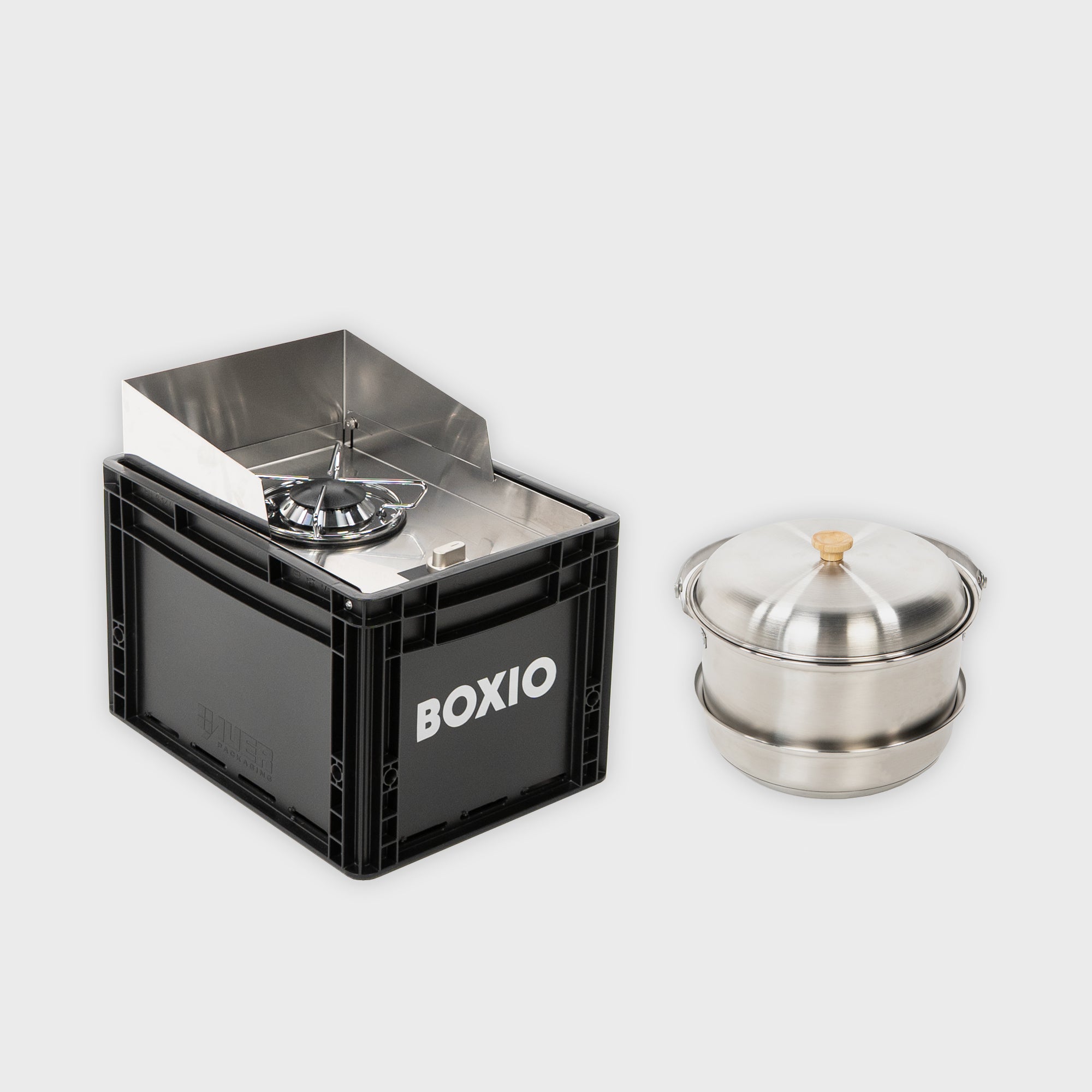
Wild camping prohibited – what are the consequences of violations?
Penalties vary widely by state. Here's a brief overview:
Table
| Federal State |
Fine (tent) |
Fine (car) |
|---|---|---|
|
Bavaria |
up to 500 € |
up to €2,500 |
|
Brandenburg |
up to 500 € |
depending on duration up to 800 € |
|
Mecklenburg-Western Pomerania |
up to €5,000 |
up to 1,000 € |
|
North Rhine-Westphalia |
up to 300 € |
depending on the duration |
Are there federal states where wild camping is permitted?
Things are a little more relaxed in:
-
Mecklenburg-Western Pomerania
-
Brandenburg
Here, hikers with tents are allowed to sleep outdoors for one night – usually without tent poles or only with a tarp. However, it's best to check in advance where exactly this is permitted!
Alternatives to wild camping
Want adventure without the hassle of dealing with the regulatory authorities? Here are a few platforms for legal overnight stays:
-
Alpaca Camping – private, rural, charming
-
Campspace – pitches throughout Europe
-
Countryside pleasure – camping on farms with an annual vignette
-
Park4Night – App with user reviews for legal parking spaces
Conclusion: Freedom requires responsibility
The wild camping ban in Germany isn't a nuisance—it's a protective shield for our natural environment. Those who travel with caution, knowledge, and the right equipment can still enjoy independent, legal, and natural camping.
With BOXIO 's sustainable camping solutions—such as the composting toilet , the portable sink , or the gas stove —you stay flexible, hygienic, and environmentally friendly. Ideal for anyone who wants to be outdoors without leaving a trace.


